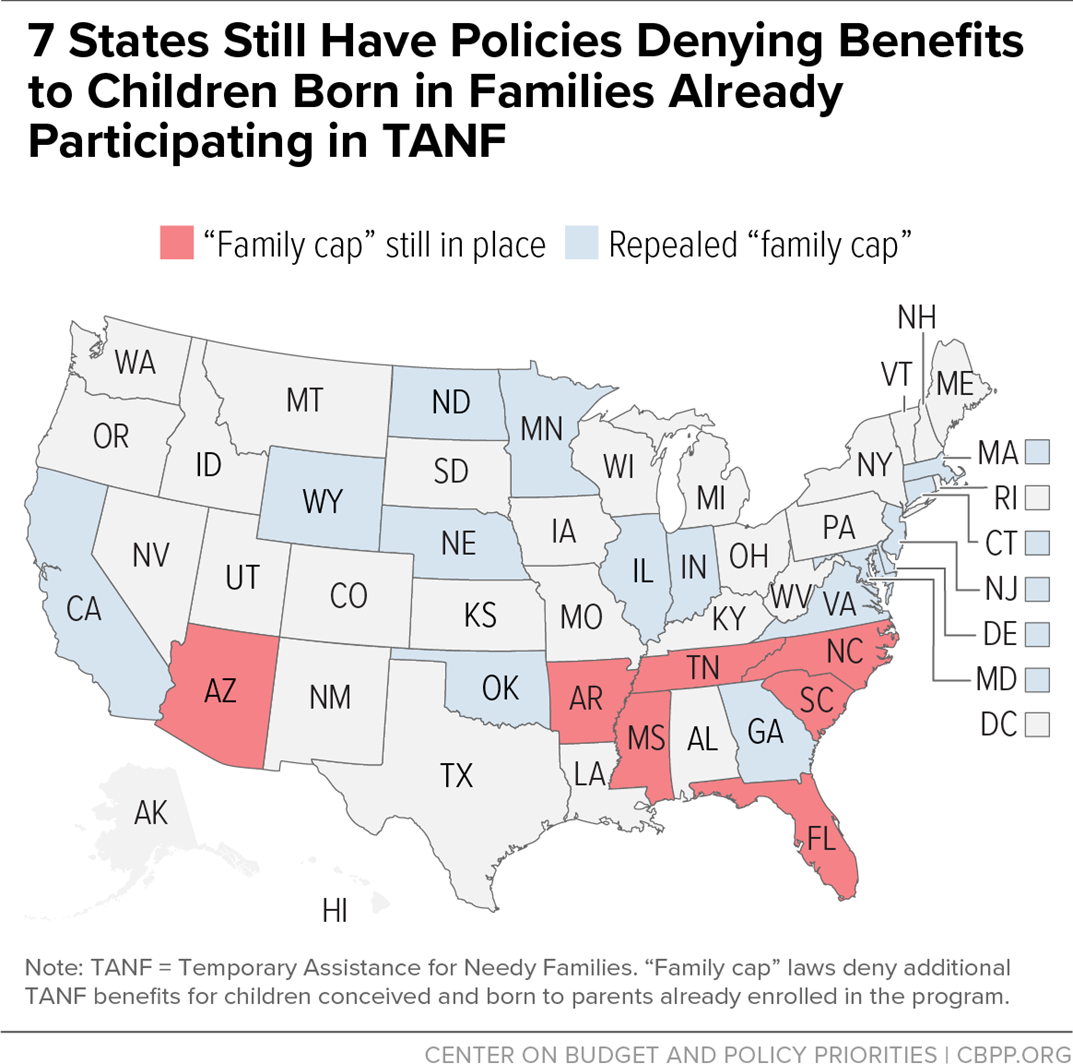BEYOND THE NUMBERS
Reproductive Justice and TANF: Repealing "Family Cap" Policies Promotes Economic Justice and Family Autonomy
The construction of the Temporary Assistance for Needy Families (TANF) program is one that contains multiple racist and sexist elements, and analyzing the program using the Reproductive Justice framework — similar to our previous analysis using the Black Women Best framework — helps illuminate how to improve it.
One example of TANF’s harmful elements is the continued existence of a “family cap” restriction within TANF programs in seven states: Arizona, Arkansas, Florida, Mississippi, North Carolina, South Carolina, and Tennessee. Family cap policies deny additional cash benefits for families who have children after their initial TANF eligibility is determined.
These policies cause more families with children to struggle to meet their basic needs by depriving them of necessary income assistance, plunging them deeper into poverty. Especially in the wake of the Supreme Court’s Dobbs decision, the Reproductive Justice framework — which promotes family autonomy and reproductive freedom — makes clear that these states should follow the lead of other states that have ended their antiquated family cap restrictions.
One of the core tenets of the Reproductive Justice framework is an acknowledgment that people have the right to decide whether or not to have children and to parent any children they do have in safe and healthy environments. Creating the conditions to make this possible necessitates having all the tools and resources available to support each person’s choice, including income assistance for families, abortion care for individuals, and other critical services and supports. Applying the Reproductive Justice framework, policy measures such as family caps, which attempt to control people’s reproductive decisions or their access to resources, are in direct opposition to the goals of reducing poverty and supporting families’ autonomy and well-being.
Historically, many states sought to punish women for their reproductive decisions by restricting access to Aid to Families with Dependent Children (AFDC), TANF’s predecessor, for women who had a child outside of marriage or lived with a man who was not their husband. Some states pursued even more drastic measures to control women’s reproductive decisions, such as criminal punishment or sterilization for women receiving or seeking AFDC who had “illegitimate” children. States that imposed these reproductive controls often targeted Black women, perpetuating racist narratives of Black mothers and other women of color as irresponsible and motivated to have more children with the intent of collecting additional cash benefits.
Family cap laws mirror previous reproductive controls, and states that still have them have an opportunity to break from TANF’s racist and sexist legacy of restricting people from exercising their reproductive freedoms.
Federal and state lawmakers began pushing for family cap laws in the early 1990s, with 22 states eventually passing these laws. Since the early 2000s, many states have repealed their family cap policies — including Delaware, Georgia, Indiana, and North Dakota, which repealed them in 2023. As noted above, the seven states where these policies are still on the books have the potential to improve their programs and ensure families have the resources they need to thrive. States can couple ending family cap policies with other actions to increase benefits, serve more families in need, and remove barriers that have historically limited access to TANF for families of color.
In the post-Dobbs era, there is added urgency to repeal coercive and harmful policies like family cap provisions. Eliminating family cap policies in TANF would mean that fewer families would experience poverty and the long-term consequences that come with it. It would also provide people with more options and supports as they determine whether and how to build and raise their families, and it would give parents more decision-making power and resources to ensure their children’s future well-being.
During the 2024 state legislative sessions, the seven remaining states with family cap policies tied to their TANF programs should repeal them and close this dark chapter in TANF’s history for good.


